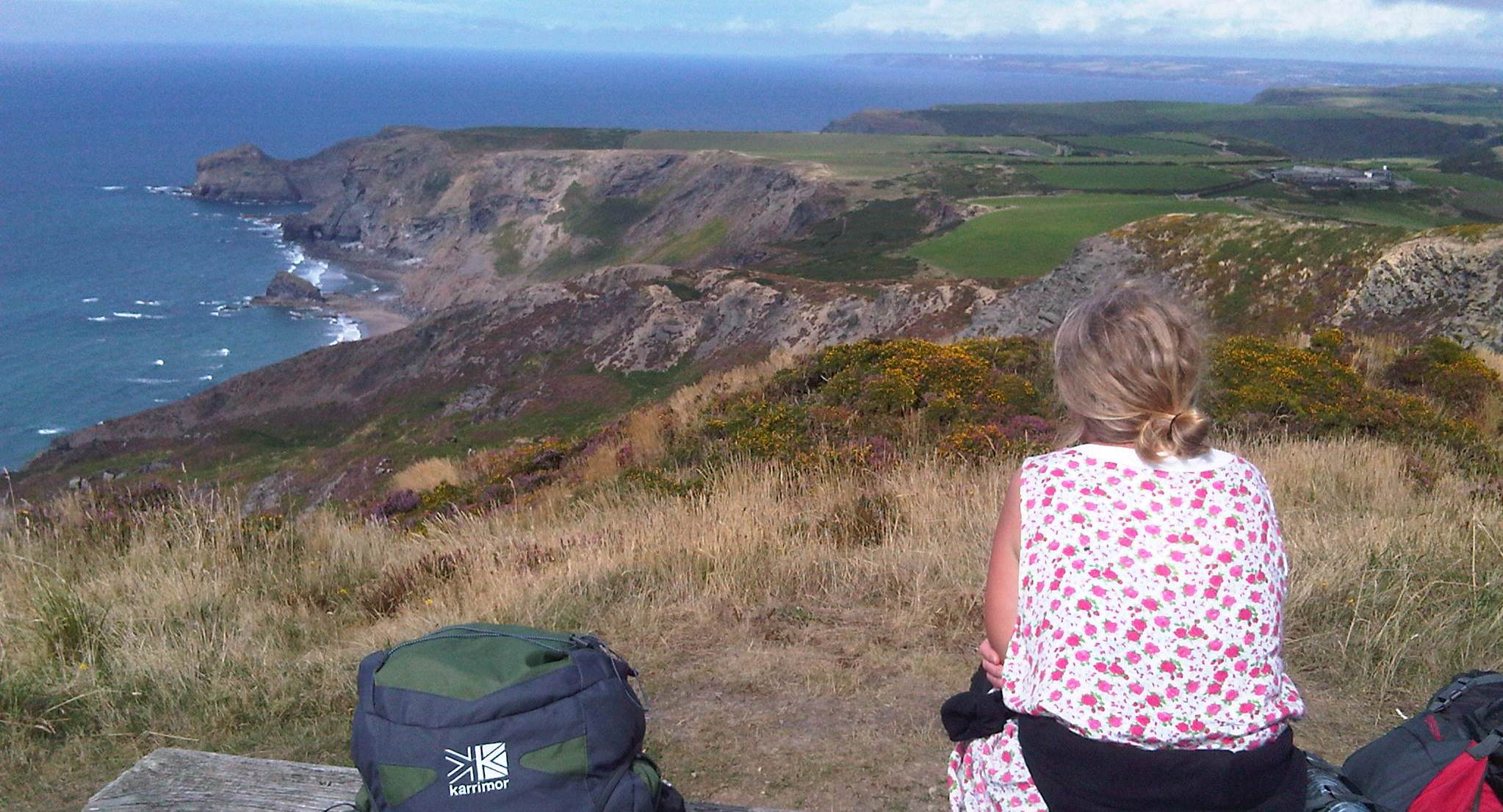- Home |
- Search Results |
- How the coastal cliffs became our home on The Salt Path
How the coastal cliffs became our home on The Salt Path
Just days after Raynor Winn learns that her husband of 32 years is terminally ill, their home is taken away and they lose their business. In The Salt Path, she explains how walking the 630 mile long South West Coast Path changed her perception of 'home,' and led to a journey of salvation.
I was hiding under the stairs when I decided to walk. I hadn’t considered walking 630 miles and climbing the equivalent of Everest nearly four times, while carrying everything we needed to survive in a rucksack on my back. I hadn’t carefully planned how we would live wild on the headlands of the South West Coast Path for nearly one hundred nights, or if we could afford to do it. But as the bailiffs hammered on the door trying to get in, it seemed like the best response. I’d just lived through the sort of week that happens to someone else. My husband, Moth, and I had lost our home of twenty years, our business and most of our possessions. Days later a doctor sat on the edge of his desk and told Moth that he had a rare neurodegenerative disease and he would die. There was no treatment, no cure; the only thing that could help at all was physiotherapy.
Unable to find anywhere to rent, we sofa-surfed as our lives spiralled into chaos and we seized the idea of physiotherapy as if it was a lifeline. In my past life, the idea of walking the whole coastline from Somerset through North Devon, Cornwall, South Devon and into Dorset, would have been irrational, irresponsible even. But as Moth threw himself into a tough exercise regimen, the idea of the walk grew. Not only as a form of extreme physio, but in the hope that by following a line on the map we might find a reason to put one foot in front of another, a way to rebuild our lives. And I desperately needed a map, something to show me the way.
Campsites were beyond our budget, so the wind-battered coastal cliffs became our home. Living wild, sleeping wild, it’s a romantic notion. But as food rapidly became our priority and each day a struggle to keep moving, those notions were quickly replaced by the realities of being homeless. Yet slowly, with every hard-earned mile, material needs began to slip away and the quietly powerful force of nature crept in. Waking in the dense fog of a wet, bracken-shrouded hillside, as light broke along the sea’s edge and the low calls of seals drifted up from the cove below, I began to let go of needs and wants. To accept that I could exist in nature without owning a part of it, and to let the wilderness in. Camped on the blocky granite cliffs near Land’s End, after a storm which had battered us in a sand-swept abrasion of horizontal rain, we were alone at the edge of the Atlantic. Just two sheets of nylon between us and Canada. We were free, free to make our own choices; to walk on or not, to give up or not. Free to choose.

Across the highest cliffs in England, through deep-wooded valleys, along rain-beaten beaches and salt-scoured headlands, the wild strength of the ancient landscape became the reason to go on. As our blisters hardened and our skin turned to leather, the weight of the pain and loss that we carried began to lighten. No longer jagged rocks, more smooth sea-worn stones. It was still there, but a little easier to carry. I had thought, at the start of the journey, that the walk would give me time and space to think things through and come to terms with what had happened. But I’d barely thought at all. Each step was its own reason, and the reason for the next. The journey had become a walking meditation, and as it did my thoughts were released. No longer clinging to the past or despairing over the future, tentatively, shyly, I began to let hope in.
Moth had found the early days of the walk almost unbearably hard. Just getting out of the tent each day and putting his rucksack on would exhaust him. We’d walked over two hundred miles when we reached Portheras Cove, a hidden bay at the back of the ocean where we pitched the tent on the beach and shared the sea with a pod of dolphins. I’d noticed that Moth seemed stronger, more upright, more sure during the last week, but I hadn’t dared to hope. When we picked up our tent, fully erected with the sleeping bags still inside and ran up the beach away from the incoming tide, he was strong in a way we’d been told he would never be again. Safe on dry sand, his determination in that wild shattered landscape allowed that spark of hope to fizz into life.
Living at the edge, between the sea and sky, we were held back from the edge of despair. On Lizard Point, the most southerly rocks of the mainland, as swallows massed in their hundreds ahead of their long journey south, I realized that like them I could instinctively feel where I should be. I had begun the walk believing that home was the stone walls that surrounded me. But now, on a foot wide path, burnt by sun and wind, battered by rain and life, I knew differently. Home is what makes you feel strong and safe. Home is a state of mind. I put my rucksack back on and followed Moth’s footprints in the dust. Home already.

Watch: Raynor Winn talks about the Salt Path
.